I’ve been following the Human Resources (HR) industry closely for more than two decades. I have seen good trends and concerning ones. But right now, I’m so optimistic about the future of hiring because forward-thinking organizations are discovering a wealth of untapped talent by focusing on what really matters: skills, competencies, and the ability to do the job well.
The stats alone should make every HR person take notice: removing degree requirements unlocks 19x more candidates according to Jobs for the Future (2023), while the Society for Human Resource Management’s (SHRM) 2023 research shows skills-first hiring reduces cost-per-hire by 30%. Plus, McKinsey (2023) found that companies adopting skills-first practices decrease turnover by 42%.
This skills-first approach opens doors to diverse talent, bringing fresh perspectives, practical experience, and proven capabilities from non-traditional pathways.
The Center for a Skills First Future
SHRM has always been on the leading edge of HR research and thought leadership, and the SHRM Foundation is helping guide employers to embrace a skills-first philosophy. In June 2025, the SHRM Foundation launched the Center for a Skills First Future (SFF). It’s basically a one-stop shop that gives employers the tools and resources to implement skills-first hiring and talent development strategies.
Four Tools That Work
Here’s what I love about SHRM’s approach: they didn’t just create more theory. They built four practical tools that organizations can use:
- Skills Action Planner: It’s like a diagnostic tool that helps teams or organizations figure out where they are and where they need to go with skills-first practices. It takes about 15 minutes and provides a customized roadmap.
- Resource Library: Real research, practical tools, and case studies that can help organizations implement skills-first programs.
- Skills First Credential: A credential program for HR professionals who want the knowledge and validation to lead these initiatives.
- Vendor Database: Vetted solutions and community support to help organizations find and choose tools and platforms.
Heavy Hitters Are All In
This probably isn’t the first time you’ve heard about Skills First. It’s becoming a movement. Walmart, Charles Koch Foundation, and Workday have all put significant funding behind this initiative. Plus, you’ve got Business Roundtable, Jobs for the Future, and the National Governors Association all collaborating.
When organizations come together like this, you know something significant is happening.
How Can Employers Measure Candidates’ Skills?
One of the biggest challenges in skills-first hiring is actually identifying and measuring those skills accurately. That’s where competency assessments become invaluable. At Holmes Corporation (HC), we’ve seen how industry-specific assessments can transform both individual career development and organization-wide talent strategies.
For individuals, competency assessments pinpoint specific knowledge gaps and skill areas, creating a clear baseline that informs personalized training and career recommendations. Instead of guessing what someone might need to learn, you get data-driven insights that guide development paths.
For organizations, enterprise-wide skills mapping provides a comprehensive view of team capabilities. These assessments benchmark your workforce’s knowledge and skills against industry standards, and when paired with organizational goals, help identify development opportunities and hiring needs.
What makes this particularly powerful is when assessments are based on your association’s body of knowledge and standards. This creates a direct connection between evaluation, workforce development, and the competencies that truly matter in your industry.
Why This Matters to Us at HC
HC has been committed to skills-based professional development for more than 50 years. Long before it was trendy, we believed in industry-driven knowledge and skills as a career differentiator. Our mission has always been to elevate professional skills throughout entire careers, which aligns perfectly with what SHRM is trying to accomplish.
Through our partnerships with professional associations worldwide, I’ve seen firsthand how skills-focused certification programs open doors for people who might otherwise get overlooked. We’ve watched talented professionals advance their careers not because they had the “right” degree, but because they could demonstrate real competency.
This Skills First movement is a fundamental shift in how we think about human potential. Companies that embrace these practices aren’t just solving their immediate talent problems; they’re building a more equitable and effective approach to work.
If your association is interested in using your body of knowledge to create skills assessments that help support your members’ skills-first initiatives, we’d love to talk! Visit HolmesCorp.com or email us at [email protected].







